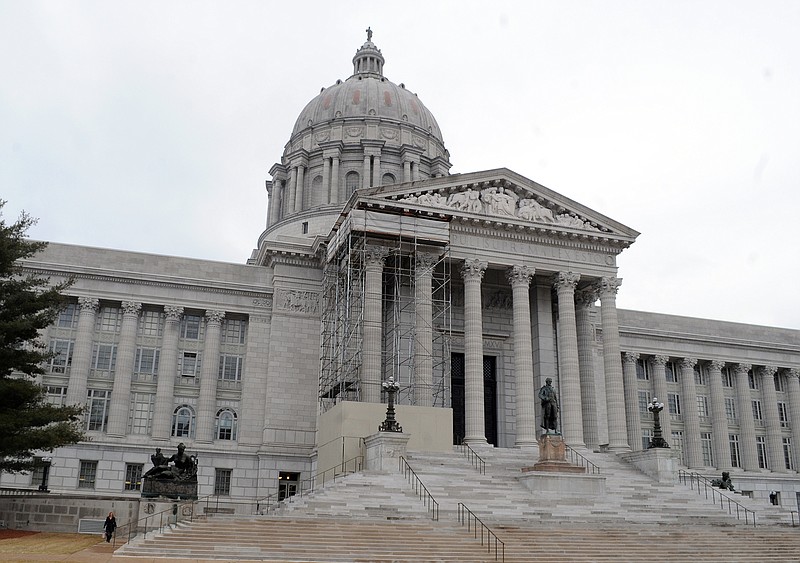Missouri's Republican-led Legislature approved tax cuts for both individuals and corporations and sent a gas-tax hike to voters, just hours before the end of the regular session and beginning of a special one to consider impeaching Gov. Eric Greitens.
Lawmakers faced a 6 p.m. deadline to pass bills in the annual regular session. Within minutes of adjournment, they launched a special session to consider discipline against Greitens. He faces allegations of sexual misconduct during an extramarital affair in 2015 and that he raised money for his gubernatorial race by using a donor list without permission from a charity he founded. He has denied criminal wrongdoing.
House Democratic Minority Leader Gail McCann Beatty described 2018 as "a session of scandal" because of Greitens. But while the governor's troubles have at many times overshadowed the legislative session, GOP leaders continued to push to get work done.
Despite the distraction, Republican House Speaker Todd Richardson said lawmakers put their heads down to enact policies to make Missouri "the most competitive economic environment in the country." He touted tax and labor law changes among GOP accomplishments.
On Friday, the House voted 96-42 to pass a bill to cut the corporate income tax rate, which Republican bill sponsor Sen. Andrew Koenig called "the most destructive tax known to man."
The bill would lower the current 6.25 percent rate to 4 percent in 2020, a revenue loss that is estimated to be at least partially offset by a change in how multistate corporations can calculate their taxable income. Republican House Budget Committee Chairman Scott Fitzpatrick said the changes are projected to cost as much as $8 million or bring in as much as $12 million more in state revenue.
The corporate tax code changes would be paired with a separate tax cut for most individuals - if both measures become law. Under the individual income tax proposal, which passed Thursday, the top rate would drop from 5.9 percent to 5.5 percent starting in January. The top rate applies to most Missourians.
Individuals' income tax rate would gradually drop to 5.1 percent if the state meets revenue targets. To balance the loss in revenue from the tax cut, lawmakers proposed reducing a federal income tax deduction. Earlier estimates put the cost of the changes at a high of $5.8 million in fiscal year 2023, although that did not account for Senate amendments to the plan.
While Republicans and business groups praised the proposed tax code changes, McCann Beatty raised concerns that they could strain the budget.
"Will they get some tax cuts, yes," she said of the impact on Missourians. "But what are we going to have to take away in exchange? And unfortunately, I think it's going to be our most vulnerable who are going to pay the price for our tax cuts."
Lawmakers on Friday also sent a proposed 10-cent gas tax hike to the Nov. 6 ballot for voters to consider. Legislative researchers project it could raise as much as $293 million by fiscal year 2027, which would go to the Highway Patrol and maintenance and repair of roads and bridges.
Republicans in power also succeeded in pushing through several labor-related proposals, despite some pushback from Democrats.
On Thursday, legislators voted to change the date of a public vote on a right-to-work law banning mandatory union dues. The Legislature passed right to work last year, but it never took effect because union supporters collected enough signatures to block it until a statewide vote.
It had been slated for the Nov. 6 general election, but now it will go before voters during the Aug. 7 primary. The date change will shift an expected heavy union turnout away from Democratic U.S. Sen. Claire McCaskill's re-election bid.
Lawmakers also passed a bill to further regulate public unions, including a proposed requirement that they hold recertification elections every three years and get permission annually to withhold dues from workers' paychecks. Another proposal passed by lawmakers would change how some local minimum wages are calculated for public works projects.

